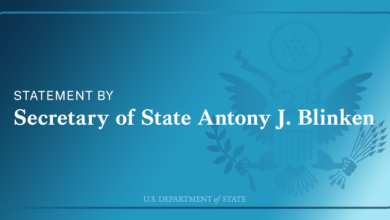Boston Mayor Wu knocks Senate for killing tax shift bill, City Council sets rates

Boston Mayor Michelle Wu took a swipe at the state Senate for killing her plan to hike commercial tax rates, while the City Council swiftly opted to set tax rates based on a conciliatory recommendation from the city’s chief financial officer.
The City Council voted unanimously to set the residential tax rate at $11.58 per $1,000 of value and the commercial tax rate at $25.96 per $1,000 of value, with the maximum shift of the tax burden allowed by state law, or 175%, onto businesses.
The average single-family homeowner will see a year-over-year property tax hike of about 10.5%, and will experience a 21% quarterly hike in their January third-quarter bills, city officials have previously said.
The Council also opted to set the residential exemption at the maximum rate allowed by state law, at 35%, which computes to a roughly $3,984 deduction from a qualifying homeowner’s tax bill.
“This all falls under current state law,” Council Vice President Brian Worrell, chair of the Ways and Means Committee, said at Wednesday’s meeting. “If the state wants to change those laws, this body already has an income-eligible senior tax exemption petition at the State House that can be taken up.
“If they are seeking a way to work on targeted tax relief for homeowners, we also have that; it’s the home rule petition that was just declared dead.”
Worrell was referring to the mayor’s eight-month bid to hike commercial tax rates, which was approved in two iterations by the City Council and House of Representatives.
Wu’s plan died Monday in the Senate, however, upon the city’s release of final state Department of Revenue-certified valuation numbers that showed homeowners would not be hit with the dramatic tax increase the city had originally projected.
“The sky is not falling,” Worrell said at a Council hearing earlier in the day where the administration recommended the later-approved rates, echoing what state Sen. Nick Collins, a South Boston Democrat said when blocking the mayor’s tax plan for a third and final time on Monday.
Collins on the Senate floor Monday, prior to Senate President Karen Spilka opting to formally kill the mayor’s tax bill, hammered the city for the discrepancy in the less dire final numbers that he said represented a “campaign of fear and manipulation” that was proven to be a “farce.”
Wu hit back on GBH’s Boston Public Radio on Wednesday, accusing the Senate of playing games, and Collins of making “misleading or misinformed” statements.
“We don’t have time at the city level to play games,” Wu said. “I took this process — and many, many residents, seniors, neighborhood leaders, advocates, union workers — took this process very seriously.”
Wu maintained that she had not been aware of the concerns of Collins or other senators ahead of time, saying that those senators did not reach out to her office to share their concerns or try to work with her on addressing them.
She said she was operating under the impression, based on the meeting she had with Spilka, Boston senators and the business groups to restart negotiations after a prior version of the bill stalled in the Senate this past summer, that the instructions that would lead to its passage in that chamber were clear.
“The instruction” from those senators was, Wu said, “work it out with the business groups, and we’re good with that.”
Those talks led to a compromise bill with four business groups who withdrew their opposition contingent upon a lower tax shift onto commercial properties that would result in an annual tax hike for homeowners that was in line with the average increase over the past five years, or about 9%.
Wu’s administration in October released valuation projections that pointed to a 14% annual tax hike for the average homeowner without the legislation, but final certified numbers showed the year-over-year increase if the bill should fail would be in line with the past several years, or about 10%.
The legislation would lead to a lower annual tax hike for homeowners of about 5%, leading senators and the four business groups to back away from the deal.
Wu, for her part, maintained that the final numbers were in line with the range her administration had been projecting and that the higher numbers her team had been citing represented a “worst-case scenario.”
Her chief financial officer, Ashley Groffenberger, insisted that without the legislation and based on the contingency tax rates the administration recommended, homeowners will see a “very, very significant increase in taxes.”
Groffenberger also said there was no time for other options, given the deadline her cabinet and departments were under to send out tax bills this month.
Councilor Erin Murphy, during the day’s Council meeting, had introduced a home rule petition to increase the residential exemption to 40%.
“By increasing the residential exemption, we can offer immediate financial relief, helping to stabilize tax bills and protect them from sudden increases,” Murphy said. “This measure is especially crucial as we continue to face rising housing costs and economic challenges.”
Murphy’s proposal was criticized by a city spokesperson on Tuesday for having the potential to shift more of the tax burden from homeowners onto renters, and was referred to a Council subcommittee for further discussion.
Originally Published:




